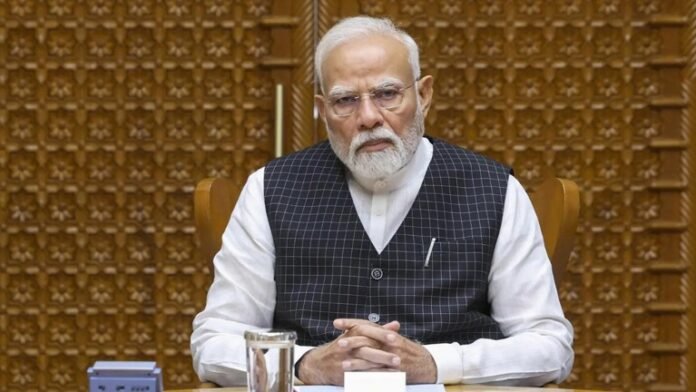India has launched a series of strong and calculated responses that have not only echoed within national borders but have also triggered anxiety across the border in Pakistan. The attack, reportedly carried out by Pakistan-backed terror groups, has intensified the already fragile diplomatic atmosphere between the two nuclear-armed neighbours.
1. Precision Strikes Across the LoC
Just days after the Pahalgam ambush, the Indian Army launched targeted strikes across the Line of Control (LoC), demolishing multiple terror launch pads in Pakistan-occupied Kashmir (PoK). According to defence sources, these strikes were conducted with surgical precision, mirroring the 2016 response to the Uri attack. Surveillance drones and real-time intelligence played a key role, ensuring maximum damage to terror infrastructure while avoiding civilian casualties.
Military officials stated that the action was not merely retaliatory but a preemptive strategy to deter further infiltration attempts during the peak summer months — a time when cross-border movement traditionally spikes.
2. Diplomatic Blitz: Global Briefing on Pakistan’s Role
The Ministry of External Affairs (MEA) wasted no time in launching a full-scale diplomatic campaign. India has briefed major global powers including the United States, France, Russia, and the United Kingdom about Pakistan’s alleged support to the attackers. Foreign Secretary Vinay Kwatra personally led multiple briefings with envoys in New Delhi, underlining India’s evidence that Pakistan-based Lashkar-e-Taiba operatives were behind the Pahalgam attack.
New Delhi has also urged the Financial Action Task Force (FATF) to re-evaluate Pakistan’s position on its grey list, citing a resurgence in terror financing and cross-border terror operations.
3. Crackdown on Separatist Networks
Back home, the National Investigation Agency (NIA) has intensified its crackdown on separatist networks in Kashmir. Raids have been carried out across Srinagar, Anantnag, and Pulwama, targeting properties and assets of individuals suspected to have logistical links to the terror outfits. Bank accounts have been frozen, and digital surveillance has been escalated to monitor communications between local handlers and their Pakistani counterparts.
Moreover, suspected overground workers (OGWs) have been detained for questioning, sending a clear message that domestic sympathisers of cross-border terror will not be spared.
4. Economic Sanctions on Pakistan-Linked Entities
In a move with potential long-term ramifications, India has identified and initiated economic actions against Pakistan-linked entities. This includes halting limited trade relations with Pakistan-occupied Kashmir and scrutinizing cross-border funding activities. The Ministry of Finance has also alerted the Reserve Bank of India (RBI) and SEBI to flag suspicious financial transactions possibly linked to terror funding channels.
This economic tightening is expected to put further pressure on Pakistan’s already faltering economy, particularly at a time when the country is seeking renewed financial aid from the International Monetary Fund (IMF).
5. Intelligence-Sharing Boost with Strategic Allies
India has bolstered its intelligence-sharing mechanisms with its closest allies, including Israel and the United States. There is reportedly an uptick in cooperation on counter-terrorism operations, with Israeli security experts offering technical support in border surveillance and infiltration detection.
Furthermore, India is in talks to host a joint anti-terror military drill with QUAD nations (Australia, Japan, the US, and India) in the Ladakh region, showcasing a united front against state-sponsored terrorism and expanding regional security cooperation.
Pakistan on the Defensive
While Islamabad has denied any involvement in the Pahalgam attack, the timing and nature of India’s swift actions have put Pakistan on edge. The Pakistani Foreign Office has issued multiple statements condemning India’s “aggression”, but analysts believe the country is scrambling to deflect growing international scrutiny.
Experts suggest that Pakistan’s reluctance to act against proscribed terror groups could once again isolate it on the global stage, especially as India continues to expose Islamabad’s duplicity on international platforms.
India’s response to the Pahalgam terror attack is not just about military might but a multifaceted strategy involving diplomacy, intelligence, economy, and internal security. It reflects a decisive shift in policy — from reactive to proactive — aiming to dismantle the very ecosystem that supports cross-border terrorism. As tensions simmer, the region watches closely, aware that the coming weeks may define a new chapter in Indo-Pak dynamics.

